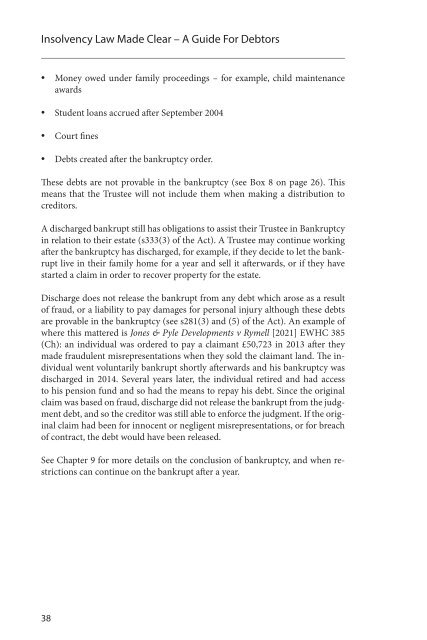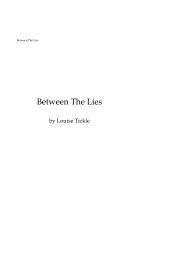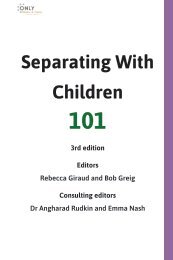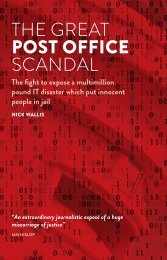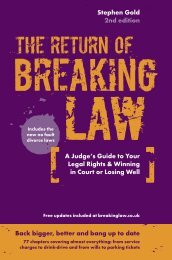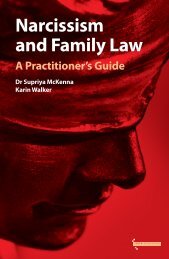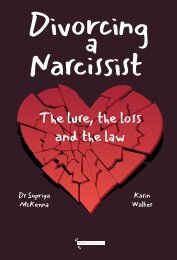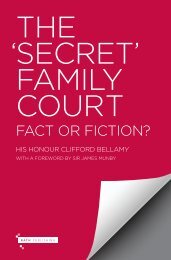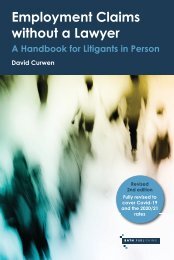Insolvency Made Clear: A Guide for Debtors
Plain English, practical guidance for anyone facing demands over a debt they are struggling to pay.
Plain English, practical guidance for anyone facing demands over a debt they are struggling to pay.
Create successful ePaper yourself
Turn your PDF publications into a flip-book with our unique Google optimized e-Paper software.
<strong>Insolvency</strong> Law <strong>Made</strong> <strong>Clear</strong> – A <strong>Guide</strong> For <strong>Debtors</strong><br />
• Money owed under family proceedings – <strong>for</strong> example, child maintenance<br />
awards<br />
• Student loans accrued after September 2004<br />
• Court fines<br />
• Debts created after the bankruptcy order.<br />
These debts are not provable in the bankruptcy (see Box 8 on page 26). This<br />
means that the Trustee will not include them when making a distribution to<br />
creditors.<br />
A discharged bankrupt still has obligations to assist their Trustee in Bankruptcy<br />
in relation to their estate (s333(3) of the Act). A Trustee may continue working<br />
after the bankruptcy has discharged, <strong>for</strong> example, if they decide to let the bankrupt<br />
live in their family home <strong>for</strong> a year and sell it afterwards, or if they have<br />
started a claim in order to recover property <strong>for</strong> the estate.<br />
Discharge does not release the bankrupt from any debt which arose as a result<br />
of fraud, or a liability to pay damages <strong>for</strong> personal injury although these debts<br />
are provable in the bankruptcy (see s281(3) and (5) of the Act). An example of<br />
where this mattered is Jones & Pyle Developments v Rymell [2021] EWHC 385<br />
(Ch): an individual was ordered to pay a claimant £50,723 in 2013 after they<br />
made fraudulent misrepresentations when they sold the claimant land. The individual<br />
went voluntarily bankrupt shortly afterwards and his bankruptcy was<br />
discharged in 2014. Several years later, the individual retired and had access<br />
to his pension fund and so had the means to repay his debt. Since the original<br />
claim was based on fraud, discharge did not release the bankrupt from the judgment<br />
debt, and so the creditor was still able to en<strong>for</strong>ce the judgment. If the original<br />
claim had been <strong>for</strong> innocent or negligent misrepresentations, or <strong>for</strong> breach<br />
of contract, the debt would have been released.<br />
See Chapter 9 <strong>for</strong> more details on the conclusion of bankruptcy, and when restrictions<br />
can continue on the bankrupt after a year.<br />
38


